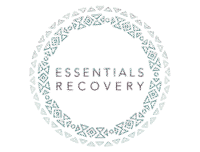Getting sober is an incredible achievement—but staying sober long-term is where true transformation happens. Early recovery is often filled with structure, support, and momentum. But as time passes, life becomes more “normal,” and the intensity of early sobriety may fade. That’s when maintaining your progress becomes the real work.
Long-term sobriety isn’t about perfection. It’s about consistency, growth, and resilience. It means developing tools, habits, and support systems that carry you through life’s ups and downs without returning to substance use. Whether you’re six months sober or six years in, these strategies can help you protect your recovery and continue building a life that’s healthy, fulfilling, and drug-free.
Keep a Strong Support Network
Just because you’ve been sober for a while doesn’t mean you no longer need support. In fact, long-term sobriety often requires more intentional connection, not less.
Stay plugged into your recovery community—whether that’s 12-step meetings, SMART Recovery, group therapy, or a sober support group. Keep in touch with your sponsor, accountability partner, or therapist. Surround yourself with people who understand your journey and can offer guidance when you hit rough patches.
Regularly check in with yourself:
- Are you isolating?
- Are you staying honest in your relationships?
- Are you showing up for others the way they show up for you?
Connection helps you stay grounded and reminds you that you’re not in this alone.
Prioritize Your Mental Health
Substance use often coexists with mental health challenges like anxiety, depression, PTSD, or trauma. Even if these symptoms improved early in sobriety, they can resurface later. Prioritizing your mental health is essential to long-term recovery.
This might mean:
- Continuing individual therapy or counseling
- Practicing mindfulness, meditation, or grounding techniques
- Staying consistent with medication if prescribed
- Using healthy coping strategies when life gets overwhelming
If you notice changes in mood, motivation, or sleep patterns—or feel emotionally stuck—don’t ignore it. Mental health is just as important as physical sobriety.
Develop Healthy Daily Habits
Long-term sobriety isn’t maintained by willpower alone—it’s supported by structure and habits. A solid daily routine can help regulate your mood, improve focus, and reduce stress.
Try building a routine that includes:
- A consistent sleep schedule
- Regular exercise or movement
- Nutritious meals and hydration
- Time for spiritual practice or quiet reflection
- Connection with others
- Creative or fulfilling activities
Your habits don’t have to be rigid, but they should serve your well-being. Consistency creates stability—something many people in recovery didn’t have during addiction.
Stay Mindful of Triggers
Triggers don’t disappear just because you’ve been sober for a long time. In fact, some new triggers may arise as your life changes—like job stress, family responsibilities, financial pressure, or even boredom.
Stay aware of the things that put your sobriety at risk. Triggers may be:
- Emotional (stress, loneliness, grief)
- Environmental (places or people associated with substance use)
- Situational (conflict, celebration, rejection)
Awareness helps you respond instead of react. Keep using the tools you learned in early recovery: HALT (Hungry, Angry, Lonely, Tired), urge surfing, grounding, and deep breathing.
And when you feel yourself slipping into risky territory—reach out. Don’t wait until you’re on the edge.
Set Personal and Professional Goals
Sobriety gives you back your time, energy, and potential. Use it. Setting goals keeps you moving forward and gives life a sense of meaning and direction.
Ask yourself:
- What do I want to learn or achieve this year?
- What’s something I always wanted to do but couldn’t during addiction?
- How can I grow in my career, relationships, or creative life?
These goals don’t have to be huge. They just need to be authentic. Recovery isn’t about staying stuck in maintenance mode forever—it’s about evolving.
Celebrate Milestones
Sobriety is a journey, and it’s worth celebrating. Recognizing milestones reinforces how far you’ve come and reminds you of what’s possible.
Whether it’s 6 months, 1 year, or 10 years sober—take time to honor it. You might:
- Treat yourself to something special
- Write a letter to your past or future self
- Share your story at a meeting
- Thank the people who supported you
- Reflect on your growth in a journal
Celebration isn’t arrogance—it’s gratitude. Own your progress.
Stay Honest With Yourself
Long-term sobriety brings new challenges. Maybe you’ve been sober a few years but feel emotionally disconnected. Or perhaps you’ve replaced substances with food, work, or relationships.
The key is to stay honest with yourself. Ask:
- Am I avoiding something?
- Am I numbing in a new way?
- Am I still living in alignment with my values?
Recovery is about progress, not perfection. Honesty is how you course-correct before things spiral.
Find Ways to Give Back
One of the most powerful parts of long-term recovery is the ability to help others. When you share your experience, support newcomers, or volunteer in your community, you reinforce your own growth.
Giving back can look like:
- Sponsoring someone in a recovery program
- Speaking at meetings or panels
- Writing about your journey
- Volunteering with recovery organizations
- Supporting friends or family who are struggling
Service reminds you where you came from—and keeps your purpose alive.
Continue Learning About Recovery
Recovery isn’t static. There’s always more to learn about addiction, emotional health, trauma, relationships, and yourself. Stay curious.
Read books, listen to podcasts, attend workshops, or take courses related to mental health and personal development.
Some topics to explore include:
- Codependency
- Boundaries and communication
- Inner child work
- Relapse prevention strategies
- Mind-body healing
The more you grow, the more resilient your sobriety becomes.
Don’t Let Complacency Creep In
One of the most common risks in long-term sobriety is complacency. You start to feel confident. You stop doing the things that helped early on—like going to meetings, calling your sponsor, or reflecting regularly.
While confidence is good, complacency is dangerous. It often precedes relapse.
To guard against it:
- Keep doing the basics: honesty, connection, self-care
- Watch for subtle shifts in thinking like “I’ve got this—I don’t need help”
- Stay active in your recovery community
- Stay humble—addiction doesn’t disappear; it stays dormant and waits for openings
Sobriety is a daily practice, not a permanent status. Keep showing up.
Prepare for Life Transitions
Big life changes—whether good or bad—can shake up your routine and emotional balance. Marriage, divorce, moving, grief, job loss, promotions, or even success can all affect your recovery.
Plan ahead for how you’ll stay grounded during transitions.
Ask:
- What support will I need during this time?
- What boundaries might I have to reinforce?
- What self-care routines do I need to protect?
Being proactive, not reactive, helps you handle change without losing your footing.
Know That It’s Okay to Ask for Help—Always
There’s a myth that long-term sobriety means you’re “done” or have everything figured out. That’s not true. You will still have hard days, self-doubt, and emotional pain.
The difference is, now you know what to do. You know who to call. You know that asking for help is strength, not weakness.
Whether you’re 6 weeks sober or 6 years, never hesitate to reach out for:
- Therapy
- Meetings
- Peer support
- Crisis help
- Honest conversation with a trusted friend
Recovery doesn’t stop—it evolves. And support is always part of the process.
Final Thoughts
Long-term sobriety is a gift—and a responsibility. It’s where recovery gets deeper, more authentic, and more empowering. You’ve already come so far. Now, the work is to stay grounded, stay honest, and stay connected to the life you’re building.
Remember:
- Keep doing the small things that work
- Keep reaching out, even when things feel stable
- Keep learning and growing
- Keep showing up—for yourself and others
You’re not just surviving anymore. You’re thriving. And every sober day is another chance to live life fully, freely, and on your terms. Call us today at 855-509-1697.



